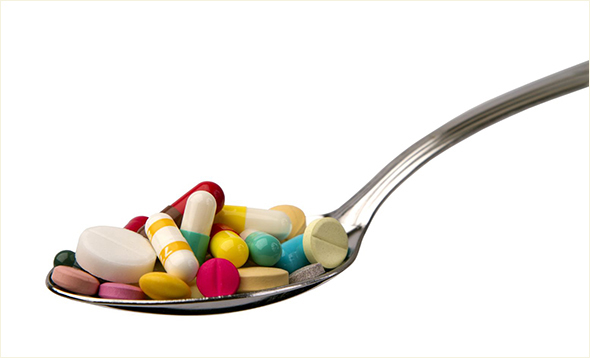That organic living is a conscious health choice
Getting the Most out of Dietary Supplements
With a diet rich in fresh produce, it is actually possible to meet your nutritional requirements through whole foods alone. However, supplements become useful when you need to improve a health condition or when you are experiencing a metabolic state that generates increased nutrient demand.
These include high-stress situations, pregnancy, breastfeeding, intense physical activity and the rapid growth of childhood. People with challenged digestion and absorption, such as senior citizens and those undergoing chemotherapeutic treatments, can also benefit from dietary supplements. And if you are a vegan or vegetarian, you are likely to need iron and vitamin B12 supplements, as both are otherwise very hard to get in adequate amounts. In all cases, you should only choose to take dietary supplements to improve a specific health condition as studies have shown that taking a generic multivitamin is not particularly helpful. Supplements can range from the very cheap to the incredibly expensive, and they come in all shapes and forms.
To help you choose just the right supplement, follow the following rules of thumb:
- If you are allergic to soy, dairy or gluten, it is also a good idea to make sure the supplements are free of substances that may set off your allergies.
- Read the ingredients list. Supplements that contain artificial flavouring or colouring, or those that have ingredients lists that seem very long often contain unnecessary amounts of fillers. Tablets tend to contain more fillers. Both capsules and tablets are now very well absorbed, but tablets tend to contain more fillers than capsules. Having said that, more nutrients can be densely packed into tablets, which means that you will have fewer pills to take in a day. Whichever you choose, vegetarians should ensure that the label clearly states that the supplement is suitable for vegetarians. The gelatin in capsules often comes from beef or pork, while stearate—a common filler in tablets—is also usually from animal sources.
- Liquids and powders are more easily absorbed. Liquids and powders are a good alternative if you don’t like to, or are unable to, swallow tablets and capsules. They are typically much easier to absorb than tablets.
- Find out what your optimum dosage should be. Many supplements do not actually provide enough of each nutrient to really make a significant difference. When you’re shopping for supplements, get some research done ahead of time and establish the optimum dosage you will need of the nutrient you are looking for so that you can ensure that the product you are purchasing will give you what you need. It is virtually impossible to overdose on most vitamins. The great majority of them are water-soluble. Any excess the body doesn’t need gets eliminated through urine. However, vitamins A, D, E and K are fat-soluble and can accumulate in the body. These should be taken in moderation or with the guidance of a healthcare professional. In addition, iron can be toxic when taken in high amounts and large amounts of zinc should not be taken for a prolonged period of time.
Once you have purchased your supplements, it is equally important to be aware of how other parts of your lifestyle may affect the way the supplements are absorbed by your body when you consume them. It is important to drink enough water throughout the day to make sure your body eliminates the excess vitamins and minerals properly. Drinks that contain caffeine and alcohol are diuretics. They encourage our bodies to lose water. So, it is important to drink even more water after having a morning cup of coffee or evening social drink. And if you choose to take a multivitamin, be mindful of when you take it. Multivitamins can be a bit too stimulating and may prevent you from having a good night’s sleep if they are taken in the evening.
Often, the greatest challenge lies in convincing your little ones to take their vitamins. It helps that there are many basic supplements now especially made for children. Vitamin C, multivitamins and even fish oils now come in friendly chewable tablets naturally flavoured with strawberry, orange or tropical fruits that typically make them easier to take. However, when such options are unavailable, crushing a tablet or opening a capsule and mixing it with cold juice, honey, yoghurt or applesauce can really help. Sometimes, just having your child hold his or her nose while taking the supplement can help. It minimizes your child’s sense of taste and turns the whole process into a game.
Dietary supplements are best used to address specific, known nutritional deficiencies. Once you are able to identify what your body lacks and can home in on the product that will deliver the appropriate nutrients, you’ll quickly discover the significant difference that the right dietary supplement can make to your health and sense of well-being.


























_1672804154.jpg)

_1611290459.jpg)